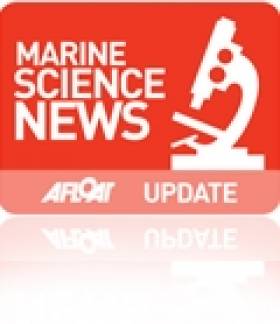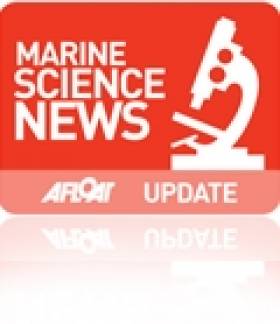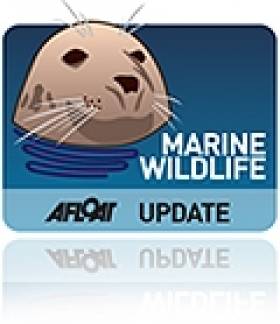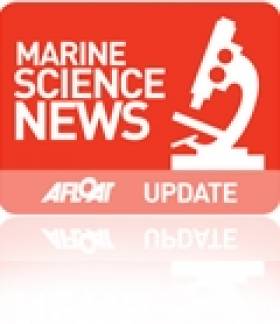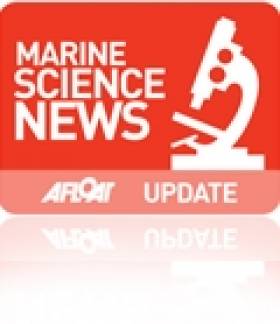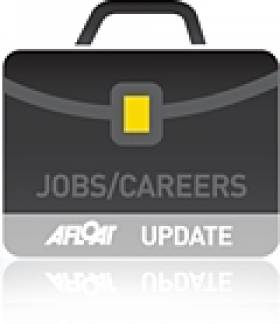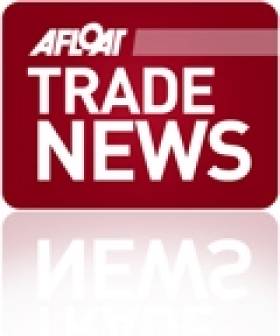Displaying items by tag: Marine
#marine – in a wide-ranging speech on Saturday Simon Coveney T.D., Minister for Agriculture and the Marine promised an integrated marine plan - to be published within months - which will ensure that the development of Ireland's enormous offshore zone [more than ten times our land area] will take place in a planned, sustainable and environmentally friendly manner.
The announcement came at the weekend when Coveney addressed the Glandore Classic Boat Summer School.
The 9th Glandore Classic Boat Summer School had the theme 'Our Ocean Wealth'. It took place over two days of sunshine, which were a welcome bonus for those who attended. Even a few traditional boats turned up: Leo McDermott's Síle a Dó with her distinctive cream sails; Uilliam Ó Lorcáin's An tÍascaire and Tim Cooke's pretty lug-sail Ilur on display inside the pier.
The Summer School offered a varied programme of talks and lectures, book-readings and launches. The model exhibition, in the little stone Church above the pier, was a popular attraction. Among the models on show were a beautiful Towelsail Yawl made by Kevin O'Driscoll of Lisheen and a Long Island Mackerel Boat by Liam Hegarty. Also on show were Brian Harte's Kinsale Hooker, the Cork Harbour One-design Querida, the Bantry Long-boat Fionnbarra and Tim Severin's Brendan.
The weekend kicked off with a reading from the newly-published book: G.L. Watson, The Art and Science of Yacht Design, by Hal Sisk, in Hayes' Bar. Minister for Agriculture and Fisheries the Marine Simon Coveney performed the southern launch of the book on Saturday evening after his wide-ranging address to the Summer School when he reinforced many of the issues raised during the day on matters such as marine spatial planning, opportunities for sea-food exports, and the promise of an Integrated Marine Plan.
The speakers on Saturday's theme: "OUR OCEAN WEALTH" included Kieran Cotter, cox of the Baltimore life-boat, who told of his Life with the Sea and the many connections in West Cork and the wider world. Wesley Flannery speaking on Marine Spatial Planning gave many examples and case studies from abroad and called for a new agency to co-ordinate policy across the multiple unconnected agencies with responsibility for the marine. Jason Whooley, CEO of BIM, presented a clear and ambitious vision for Irish sea-food production in a future which would see demand inexorably grow with increased world population and advances in prosperity by developing countries. Dr. Andrew Wheeler of UCC showed fascinating footage of the recent discovery by the Celtic Explorer of the so-called "black smokers", hot vents in the volcanic mid-Atlantic ridge, at a depth of 3,000 metres.
On Saturday afternoon John O'Sullivan, Exploration Director of Providence Resources told of the recent confirmation of the large oil reserves – estimated at 1m. bbl. – in the Barryroe field and of the company's focus on pathfinder projects. Commodore Mark Mellett of the Irish Naval Service presented his compelling rationale for the work of the Navy, their promotion of a culture of innovation and their ground-breaking alliances with other agencies. Micheal Ó Cinnéide, director of the Environmental Protection Agency, took the audience on a fascinating tour of governance and decision-making processes as they affect the marine . Lord (David) Puttnam rounded off the afternoon's programme with a thought-provoking lecture on educational potential, pointing out that Ireland was losing ground educationally, particularly compared with Asian countries and that a new generation of teachers would have to be able to prepare students for an unknowable future.
Afloat's Tom McSweeney directed a lively and wide-ranging panel discussion at the end.
Sunday's programme catered for traditional boat enthusiasts with a reading from Seanchas Ó Chairbre by Maureen O'Donovan , Pat Nolan told the story of the 50-footer BIM trawlers, Holger Lonze's presentation on his sculptural work in bronze and a projected re-enactment of a Bronze Age tin voyage, an update on the Tradboats scanning project by Pat Tanner and Hal Sisk followed by the launch of the 'Virtual Museum' web-site [www.tradboats.ie] and a round-up of local boat-building projects in Oldcourt.
The organisers, Glandore Harbour Yacht Club wish to acknowledge their sponsors: CH Marine, Skibbereen & Cork, Providence Resources plc and Glenmar Shellfish, Union Hall as well as the local hostelries: The Glandore Inn, The Marine Hotel, Caseys Bar and Hayes' Bar.
A large and diverse audience enjoyed the lectures and presentations but probably enjoyed even more meeting kindred souls and old acquaintances in the welcoming and stimulating environment that these events in Glandore provide.
#blueecomony – Scientists from both sides of the Atlantic met today at the ESOF 2012 Atlantic Symposium to explore the many ocean governance, economic development and environmental challenges and opportunities their shared Atlantic resource represents.
A key focus of the Symposium is how to harness evolving technology to drive the 'blue economy' through smart, sustainable and inclusive growth and how to achieve this through collaboration across the Atlantic Ocean in the areas of science, technology and innovation.
Speaking at the Atlantic Symposium, Dr. Peter Heffernan, CEO Marine Institute said, "The Atlantic represents a significant resource, and while it separates the continents, it also presents a huge opportunity to work together to solve shared environmental issues and to explore opportunities for development and economic benefit. Today, we have taken the first steps in creating a new roadmap for better and more focussed cooperation between the European and American continents."
Prof Scott Glenn, Rutgers University, USA, described the historical, cultural and scientific links between Europe and the United States of America divided by the expanse of the Atlantic Ocean. He pointed to challenges such as sustainable ocean governance, climate change prediction and impact, and deep-sea research which require a united approach.
These issues were further developed by Prof Michael St John, Danish Technical University and PI of the Euro-BASIN project, and by Dr Michael Crosby of the MOTE Laboratory in Florida who said, "The world's magnificent oceans are not barriers between us, but bridges of shared resources, challenges and opportunities. International partnerships designed to increase our scientific understanding of marine ecosystems as part of a single interconnected global system, that includes human activities, are essential for long-term sustainable use of these shared resources. However, translation and transfer of such scientific understanding is vital to enhance global "ocean literacy" in the broader public to build a foundation for improved stewardship of marine resources."
The final keynote speaker, Mr Robert-Jan Smits, Director-General, DG Research and Innovation, European Commission, said that "the EU and its Atlantic neighbours share the same values and global concerns, such as climate change, energy supply, food security and health. Encouraging and improving international cooperation is therefore a priority of the EU 'Maritime Strategy for the Atlantic Ocean Area' and an integral part of Horizon 2020, the new EU research and innovation funding programme."
Irish Marine Scientists Investigate Canyon's Biodiversity
#MARINESCIENCE – A team of Scientists led by Dr. Louise Allcock, NUI Galway set sail onboard the RV Celtic Explorer 13th April 2012 to investigate biodiversity on the Whittard Canyon System.
Whittard Canyon is a huge canyon system that spans Irish, UK and French waters along the Atlantic margin. This survey will take place in the Irish territory where the Continental shelf drops down to depths beyond 3000 m. The Marine Institute's Holland 1 Remotely Operated Vehicle (ROV) will be deployed to explore the steep canyon walls where biodiversity is greatest because of the fast currents there. Whittard has been explored before, but the system is so vast that some areas are still unsurveyed.
The multidisciplinary team on board will be looking for corals and sponges, which can be found in extensive reefs at some depths. A feature of species growing attached to the seafloor is the production of chemicals, thought to deter grazing and overgrowth by other animals. There is significant scientific and commercial interest in the novelty of these chemicals for medical applications. Material previously collected for the Irish Marine Biodiscovery Programme has shown activity against some cancer cell lines, the first step in potentially developing new treatments. Material collected on this cruise will be examined in antibacterial and anti-cancer assays as part of the National Marine Biodiscovery Programme in NUI Galway, UCC and the Marine Institute.
The survey will also carry out detailed surveys of the canyon system in collaboration with onboard taxonomists from across Europe, who are experts in identifying deep sea marine organisms. Biogeochemists from Trinity College Dublin will study the processing of material in the benthic ecosystem, with oceanographers from Galway following the transport of sediment and planktonic production to deeper waters. These studies will improve the understanding of the canyon ecosystem and the links between surface and deep waters.
The scientists will be blogging throughout the survey (13th - 29th April) and you can follow their progress here.
This research survey and the Beaufort Marine Research Award are carried out under the Sea Change strategy with the support of the Marine Institute and the Marine Research Sub-programme of the National Development Plan 2007–2013. The Beaufort award in Marine Biodiscovery is a consortium between NUI Galway, UCC and Queen's University Belfast.
The Ship-Time Programme provides access to the National Research Vessels (Celtic Explorer / Celtic Voyager) for research organisations based in Ireland.
Water Users Speak Out Over UK Marine Conservation Proposals
#MARINE WILDLIFE - Sailors, fishermen and SCUBA divers in England's West Country could face "tough new restrictions" if plans for conservation zones in the Irish Sea and around the UK coast go ahead.
According to This Is Cornwall, groups representing water users argue that marine protection plans "would have severe knock-on effects on those who rely on the south west's coastline for employment and leisure".
Alana Murphy of the Royal Yachting Association said: "A lot of the small inshore areas proposed as conservation zones coincide with estuaries and bays that are used by sailors for mooring, or for laying buoys for racing. We are concerned we could lose important sailing areas."
Companies involved in offshore renewable energy have voiced their concerns on the impact of marine reserved on their development, while the National Federation of Fishermen's Organisations added that the scale of proposed fishing reserves was too great, and could potentially push commercial fishermen "to other areas which will then get overfished".
As previously reported on Afloat.ie, the UK's Wildlife Trusts have expressed dismay that plans to establish Marine Conservation Zones in the Irish Sea and elsewhere have been shelved till at least next year after pressure from fishermen, boaters and other groups.
European Commission Outlines Plans for Atlantic Forum
# MARINE – Speaking at the Atlantic Conference at Malahide on Tuesday, Matthew King representing the EU's Directorate-General for Maritime Affairs, outlined the Commission's plans and indicative timetable for the Atlantic Forum to inform the EU Strategy for the Atlantic (EUSA). The Forum is not an entity, but rather a process or series of events to prepare an Action Plan for the EUSA. Timing is of the utmost priority as work on a new financial framework for the period 2014-2020 has already begun. Priority marine and maritime related projects need therefore to be positioned in the Partnership Contracts and Operational Programmes drawn up between Member States and the Commission in order to benefit from future EU co-funding, such as from structural, cohesion and regional development funding, which the Commission has proposed to be over €660 billion, for the period 2014-2020.
Mr King outlined an indicative timetable which is currently being discussed with Member States. This included an invitation from the Commission to Atlantic Member State Governments (Ireland, UK, France, Spain and Portugal) to identify a suite of strategic and large-scale co-funded flagship projects (by April 2012). Such projects must add value in terms of job creation, economic development and stewardship of our shared ocean resources. This input will inform a Consultation Document to be hosted on the Atlantic Forum website (https://webgate.ec.europa.eu/maritimeforum/category/555) circa June to July. Member States will then be invited to organise a number of Regional Stakeholder Meetings (September-October) to be followed by the preparation of a draft Action Plan (circa November 2012). A closing event would be organised in Brussels in January 2013 and the Irish Government has signalled it would like the formal adoption of the Action Plan to take place during the Irish-EU Presidency (Jan-June 2013).
Addressing the Conference, Minister Simon Coveney, TD, Minister for Agriculture, Food and the Marine, described Ireland's oceans as an extraordinary natural resource and a key component of Ireland's future development strategy. He noted that the timing of the national consultation Our Ocean Wealth, launched by the government on 2nd February, was opportune and would not only define future government marine policy but would feed into the work of the Atlantic Forum.
Other speakers presented a range of innovative collaborative projects, co-funded under the INTERREG-IV Atlantic Arc Programme, in areas such as maritime transport, renewable ocean energy, maritime tourism, artisanal fisheries and coastal pollution response. Dr Peter Heffernan, CEO, Marine Institute, addressing the conference said that Ireland now had the research and innovation capacity, the specialised infrastructures and international linkages to be a major player in the Strategy for the Atlantic and the delivery of a thriving marine economy.
The Atlantic Conference, titled "The Marine Economy – A key component of the EU Integrated Strategy for the Atlantic Area" was organised by the Border, Midlands and Western Regional Assembly and the EU Atlantic Area INTERREG Programme. The Conference was attended by over 170 delegates from across the Atlantic Area representing public and private organisations, local and regional authorities, universities and research institutions.
Coveney to Address Malahide 'Marine Economy' Conference
#MARINE – Simon Coveney, T.D., Minister for Agriculture, Food and the Marine will be a keynote speaker at 'The Atlantic Area Conference, the Marine Economy' – a key component of the EU Integrated Strategy for the Atlantic Area", hosted by the Border, Midland and Western Regional Assembly on 7th February 2012. will provide a unique opportunity to inform the various stakeholder groups on the European Union Strategy for the Atlantic (EUSA) which was officially launched in Lisbon (Portugal) on 28th November 2011.
Keynote speakers will include: Mr. Simon Coveney, T.D., Minister for Agriculture, Food and the Marine; Mr. Matthew King, Head of Unit, Maritime Policy for the Atlantic Space, DG MARE, European Commission. Other speakers will include representatives from the Atlantic Area Programme Managing Authority, the Conference of Peripheral Maritime Regions (CPMR), the Marine Institute and a selection of Atlantic Area approved marine projects.
Presentations will outline the aims and objectives of the Atlantic Strategy as a mechanism to support growth and job creation through the sustainable development of our shared Atlantic marine resources.
Marine Movie Competition Seeks 'Links Between Ocean and Daily Life'
If you fancy yourself as a marine movie maker, a latter day Jacques Cousteau, a Stephen Spielberg or you just like making movies then here is your chance to make it on to the big screen.
Enter the International Mário Ruivo Marine Movie Competition and you could win a cash prize of up to €3,000. All you need to do is make an original 15 minute DVD on the theme: "The Seas and Us – links between the Ocean and daily Life";
In order to enter you must be in full time education and between the ages of 12 to 21 years.
Submit your DVD by the deadline of 25th March 2012.
Prizes include: €2,000 (Junior: 12 – 18 years); €3,000 (Senior: 18 – 21 years) and a trip to Lisbon, Portugal (September 2012), to pick up your prize.
Follow this link for more information the competition.
Galway Sailing School Launches 'Careers at Sea' Expo
#JOBS – Galway sailing school Bow Waves is taking steps to combat the unemployment crisis at home with its own "Careers At Sea Expo" next month. The event will take place on the 4th of January at 7pm at the Galway Radisson BLU Hotel.
Many areas of the marine industry have proven to be unaffected by the economic downturn says the firm's Barry Comlon who has joined the Bow Waves team as Chief Instructor having just come back from Canada where he was working within the Cruising and yacht charter business in Vancouver.
Conlon believes there is a worldwide demand for qualified marine personnel and to help people take advantage of these opportunities, the Bow Waves "Careers At Sea Expo" will showcase the range of careers available to people, and how to gain entry into the field.
The Expo will feature informative talks by several different speakers with professional experience of working at sea. The talks will cover a wide range of career opportunities including; crewing and skippering of offshore vessels, super yacht skippering and crewing, instructing, charter industry, deckhands, and the wide range of job opportunities in the cruise ship industry.
Each talk will be approximately 20 minutes in length and will outline how each speaker got started in their line of work, the speakers' professional experience, any pitfalls they encountered and how to avoid them.
Each speaker will outline what training they required for their jobs, and Bow Waves will make a presentation on the relevant training courses that they run from their centre in Galway. There will be a Q&A session with each speaker following their talk, and the Bow Waves team will be on hand to answer any questions or queries regarding the training that they provide, as well as providing career guidance.
The evening will be invaluable for anyone considering a career change or working abroad, and is open to everyone. You do not need any experience of the marine sector or boating to attend. Tickets for the evening cost €10, to reserve your space ring Barry on +353 91 560 560 or e-mail [email protected]
Coveney Underlines Importance of Marine to Coastal Communities
#BUDGET – Announcing his expenditure estimates for 2012 today the Minister for Agriculture, Food and the Marine, Simon Coveney TD said The marine and fisheries sector is particularly important to coastal communities and savings have been made through redeployments at a number of state agencies. The Sea Fisheries Protection Authority (SFPA) where Revised arrangements for meetings & communications with port offices saved €300,000 per annum. At the Marine Institute Internal redeployment will make savings of €304,000 per annum. Reduced rental and storage costs at Bord Isacaigh Mhara will lead to savings of €138,000 per annum
In addition to funding for investment schemes in the processing sector, aquaculture development and fishery harbours, the Minister said that he is providing for an increase in the grant-in-aid for BIM in recognition of the on-going valuable role which it plays in the development of the fishing sector but also in view of the added responsibility which it will have in relation to the deep sea aquaculture.
The Fishery Harbour and Coastal Infrastructure Development Capital Programme provides funding for works at the six State-owned Fishery Harbour Centres, (Howth, Dunmore East, Castletownbere, Dingle, Ros a Mhíl and Killybegs) as well as other Local Authority owned harbours and landing places around the coast.
Funding allocated under this programme will be used for the improvement of the Fishery Harbour Centres to ensure the future viability of the fishing industry, bring the Fishery Harbour Centres up to a best in class standard, reduce congestion and improve safety for all harbour users.
This programme enhances harbour infrastructure, provides much needed employment in coastal communities during the construction phase and establishes a platform to create and support sustained employment in the fishing, aquaculture and marine leisure sectors.
Crosshaven Boatyard Appointed Seaward Agents
Crosshaven Boatyard Co. Ltd have recently signed a 'Representation Agreement' with top of the range motor boat builders Seaward Marine of Cowes on the Isle of Wight.
The Cork yard will act as Seaward Marine Ltd's exclusive representative for the promotion and marketing of their range of pleasure craft in Ireland.
Seaward Marine Ltd have a modern facility in Cowes and they are world renowned for their comprehensive range of Nelson motor yachts. Over the past 25 years TT Boat Designs, the Nelson designers, have produced a range of safe all-weather sea keeping craft. The luxury fit-out provided the all-important niche and reputation for Seaward craft that has continued to date.
The current range consists of the Seaward 23, 25 and 29, the Seaward 35 Cockpit and Aft-deck versions and the magnificent Nelson 42. All craft are semi-custom fitted and are offered with a choice of propulsion to suit every need.
For further information please contact Hugh Mockler or Donal McClement at Crosshaven Boatyard Co. Ltd,



























